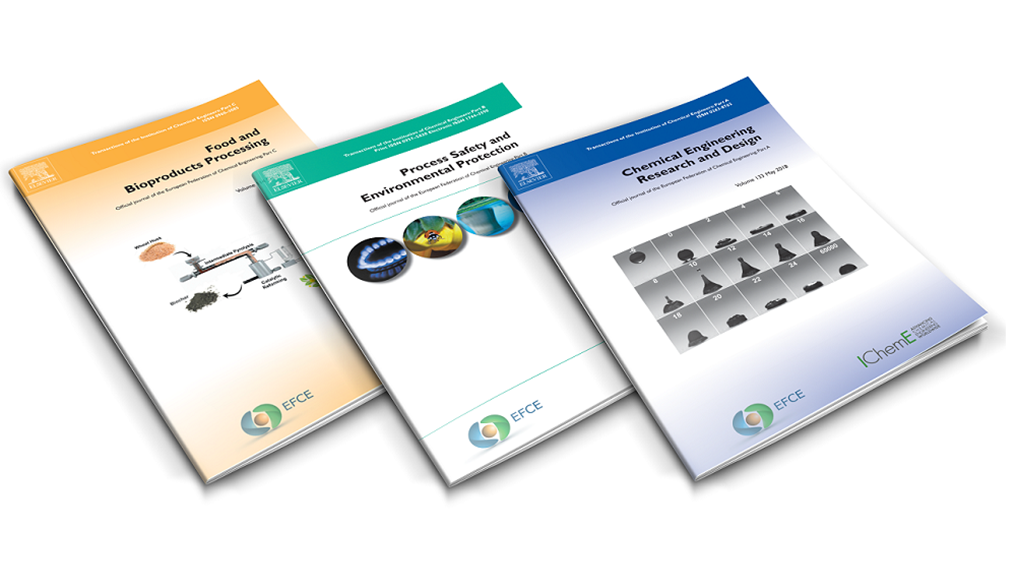IChemE journals increase in Impact Factor

12th July 2019
The Institution of Chemical Engineers (IChemE) has announced an increase in Impact Factors for three of its peer-reviewed chemical engineering journals – with one receiving its first-ever Impact Factor.
Impact Factors provide a quantitative measurement of a journal in relation to its competitors. An Impact Factor is based on a ratio of the citations to a journal in the most recent year to a count of articles and reviews published in the journal in the prior two years.
Process Safety and Environmental Protection (PSEP) saw the biggest rise in its Impact Factor, up to 4.384 - a 27% increase on last year’s figure of 3.441. PSEP has jumped in the journal rankings - now 21st out of 138 chemical engineering journals (27th last year) and 16th out of 52 environmental engineering journals (18th last year).
Adisa Azapagic, Editor-in-Chief of PSEP (Environment), said:
“This is an excellent result for PSEP. The Impact Factor has been increasing consistently over the years, which in turn resulted in a significant increase in paper submissions to the journal. I am very grateful to our editors and reviewers, as well as the IChemE and Elsevier teams for all their efforts and contribution to the success of the journal.
“Process safety and environmental protection are vital to the study and practice of chemical engineering, so it is key that we continue to support high quality research and scholarship in this area.”
Food and Bioproducts Processing (FBP) saw its Impact Factor increase from 2.744 to 3.324 this year. This moves FBP up in the rankings to 37th out of 138 chemical engineering journals; 51st out of 162 biotechnology and applied microbiology journals; and 30th out of 135 food science and technology journals.
Editor-in-Chief of FBP (Bioprocessing), Nigel Titchener-Hooker, said:
“We’re delighted to see FBP continue to do so well. Jumping up in the journal rankings is a clear indication that the FBP research papers are incredibly important, relevant and topical.”
Chemical Engineering Research and Design (ChERD) now has an Impact Factor of 3.073 - up 10% from last year’s figure of 2.795. It now ranks 44th out of 138 chemical engineering journals.
Eva Sorensen, Editor-in-Chief of ChERD, said:
“The increase in Impact Factor is brilliant news in a pool dominated by more specialised titles. ChERD continues to remain true to its aim of publishing papers across the broad spectrum of chemical engineering. The journal’s success is down to all involved - the authors who make ChERD their journal of choice for publication, as well as editors, reviewers and editorial staff who maintain the journal’s high quality standards.”
Molecular Systems Design and Engineering (MSDE), which is jointly owned by the Royal Society of Chemistry and IChemE, has received its first Impact Factor of 2.708.
Neil Hammond, Executive Editor of MSDE, said:
“It is a fantastic achievement to receive this first Impact Factor result for our journal, and I’m proud of everyone who has helped us achieve this.”
The Impact Factor results are published by Clarivate Analytics.
Links
Contact
For more information please contact:
Rachael Fraser, Communications Executive, IChemE
t: +44 (0) 1788 534435
e: rfraser@icheme.org
Ketna Mistry, Communications Executive, IChemE
t: +44 (0) 1788 534484
e: kmistry@icheme.org
What is chemical engineering?
Chemical, biochemical and process engineering is the application of science, maths and economics in the process of turning raw materials into everyday, and more specialist, products. Professional chemical engineers design, construct and manage process operations all over the world. Oil and gas, pharmaceuticals, food and drink, synthetic fibres and clean drinking water are just some of the products where chemical engineering plays a central role.
IChemE
The Institution of Chemical Engineers (IChemE) advances chemical engineering's contribution worldwide for the benefit of society. We support the development of chemical engineering professionals and provide connections to a powerful network of around 37,000 members in 100 countries.
We support our members in applying their expertise and experience to make an influential contribution to solving major global challenges, and are the only organisation to award Chartered Chemical Engineer status and Professional Process Safety Engineer registration.
More information: www.icheme.org